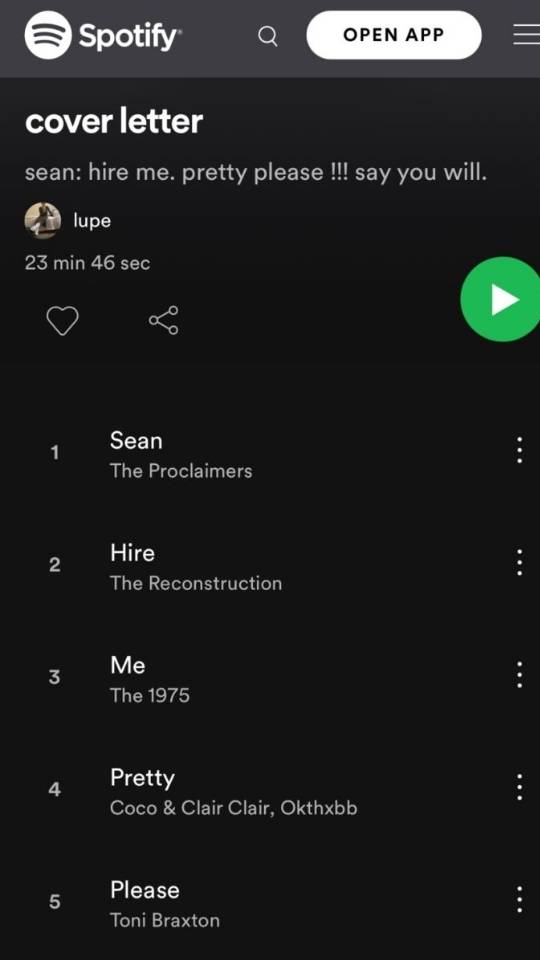If an employer requests a CV to apply for a vacancy you should always include a graduate cover letter. This is your opportunity to introduce yourself and explain your suitability for the role. You must take time over your cover letter and make sure they are immaculate. Spell checkers are not enough. Be sure to use the cover letter examples provided to give you the best chance of grabbing your dream job!
Writing a graduate cover letter
What is a cover letter? It's an accompanying document to your graduate CV and often they are an important method of communication. They can provide an informal and friendly view of personal events to people, or they can be formal documents offering factual information to people you have not met. This is your chance to tell them what skills you have and why you want to work specifically for that company. Unlike email, letters are tangible and layout is as important as content.
Graduate cover letters have a standard format and this is shown in the cover letter examples attached. If you are writing to a named person then it is 'Yours sincerely', if you write 'Dear Sir/Madam' the correct ending is 'Yours faithfully'.
A graduate cover letter should:
- Introduce them to your personality and your commitment to them
- Give compelling examples of your suitability to the company as well as the role
- Make references to key requirements they look for
- Suggest there is even more to learn about you over a call or in person
- Make the employer want to talk to you
- Demonstrate your written communication skills

Some golden rules
Never put anything in your cover letter that cannot be backed by your graduate CV or application form. The human resources staff will look for discrepancies and for any mistakes that show a lack of attention to detail. Also anything you write can be brought up during graduate interviews, so make sure you can back up what you write with good examples. Don’t forget it is actually a criminal offence to lie on your cover letter for a CV, so always be honest but convincing about what you know or the skills you have.
There are some conventions about letters of application. Generally letters sent with CVs or graduate job applications should:
- be addressed to a named person;
- state why you are writing, what you are applying for and what you are currently doing;
- flag up the most important/relevant thing you want the employer to know about you;
- use eye catching key words that the employer is likely to be looking for. You can work it out by thinking about the job spec and by doing your research;
- refer the reader to your CV or job application form;
- show that you know something about the company;
- make a connection between your skills and abilities, and company needs or wants;
- identify the career you are seeking;
- be reasonably brief.
Remember if the covering letter for a job application is poor, the employer may not bother to read your CV. This also applies to application forms as well so remember this keeps you in the race for the job, it is essential to not stumble at the first hurdle.
Attached are two examples of cover letters of a job application. Both are acceptable. Use these examples only as a guideline; your covering letter should show your originality and if you are serious about working for a particular company it should not be difficult to adapt these examples. Our cover letter guide is to help you start writing your own letter, so yours should be bespoke to the company. You're telling them you want to work for them specifically and anything generic will only decrease your chances. Remember, you will have to justify what you say and why you said it at a job interview.
Format of a graduate cover letter:
Personal statement
The personal statement can be used as a heading to a CV or as an additional statement on an application form.
The personal statement is not solely for telling the employer what a great person you are, it is about telling the employer what you hope to achieve in the future, that you will fit into their structure and you have transferable skills which will be useful for them. This is your chance to show what you have found out about the company and why you want to work for them. Even more important is to show why you would be a good asset for the team. For example:
"My career objective is to enter research in the ... industry. I have demonstrated strong research skills during university project work and much of my experience has been within a team environment. I am able to take responsibility for my own work as well as being able to demonstrate leadership when required. Meeting deadlines has been a consistent part of my academic and working life and I have learned how to communicate with people in situations which require tact. My academic skills have given me the ability to communicate effectively on paper as well as through presentations."
Personal profile
The personal profile reflects the type of person you are. It offers the employer a taste of your character and your goals, and many CVs use a skills profile. Show why you think this role is perfect for you. For example:
"I am an outgoing person who can talk to people at all levels and have been complimented on my ability to listen to other people. I can take responsibility for my own work and my own goals, but I also enjoy working with other people to reach a common goal. Reflection is an important part of my personality and this has led me to develop a strong feeling for detail without losing sight of the whole picture. ... holds strong fascination for me and my objective is to work in research within this field."
Or
"My academic and work experience has taught me to work well with other people and to take responsibility for my own work. I have an outgoing personality and am keenly interested in good health through exercise and diet. One of my most important assets is my ability to listen to people."
Skills profile
Skills profile identifies your competence in a variety of skills and these can be shown through bullet points or by a short sentence linked to specific skills. Keep this concise, but include everything relating to the job spec. They will want to see as many directly relatable skills to the job as possible. For example:
"During my academic study and work experience I have developed skills such as:
- problem solving
- time management (etc)"
Or you might support them with a short sentence, for example:
"Problem solving
My university project work has demanded that I undertake investigation into a specific topic and analyse the information before putting recommendations forward in a presentation."
"Time management
During my time at university I have undertaken full-time study, part-time paid work and enjoyed my sport with the basketball team. I have prioritised each of these activities successfully."
The best skills to write about are the ones that have achieved something positive. Any examples you have that a skill you applied to hit a target or anything positive will stand out on a cover letter. The main thing is that it must be concise. Let them see why they should want meet you, so make it personal and tailored towards their business. Whatever style you adopt remember what you say in your profile is open for questioning at an interview.
Email cover letters
When submitting a cover letter for a job applications there are a few things that you must remember to check. Firstly check that your cover letter and CV, for that matter, is attached. Be careful and check the formatting of the email and cover letter. Ensuring the font is the same all the way through. Try to keep the font consistent throughout your CV, cover letter and email. This will just look more professional. Make sure your read the job specification when applying; they may want something specific in the email subject.
The final advice
Do
- make your graduate cover letter tailored to the company.
- make it concise.
- make it persuasive and eye catching.
- proof read. Read it once, then read it again and then read it again. If possible get someone else to read it for you to catch every little typo or grammatical error.
- use an appropriate format; it must look professional i.e. for business purposes.
Don't
- make it generic.
- waffle! Think about what is relevant to the company and particularly the actual position/role.
- make it more than one side of A4.
- leave errors that will make it easy for the company to reject your application.
- forget to put the address of the company at the top of the cover letter and to sign it with you name. It is a formal letter so it must be in the correct format.
Opt for a creative approach
It is diffiuclt to make your application stand out from the crowd. However, in some instances you could opt for a creative approach! Take this example bellow of an applicant using a spotify playlist to apply! This may not be appropiate to use in some applications however it is some food for thought.




